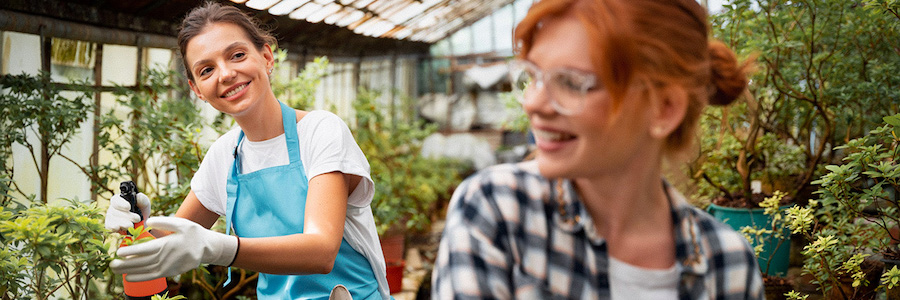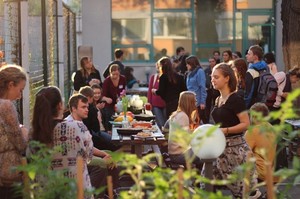
The mission of the Sustainable University project is to make Palacký University fully environmentally, socially, and economically sustainable. This means that it should act and develop in such a way that it can meet its needs, but without negative impacts in the future and on future generations. It therefore focuses on 15 areas of action, including both environmental (“green”) sustainability, often closely linked to economic sustainability (improved waste sorting, energy savings, green spaces, and biodiversity), and social sustainability (equal opportunities for all, responsible purchases, community care, education).
The key task of Sustainable University is to develop a comprehensive and binding Sustainable Development Strategy as soon as possible. This strategy serves as a basis for carrying out energy audits, waste analysis, and plant passporting at UP. For responsible purchasing and procurement, a set of recommended rules for the purchase of technology, new equipment, and appliances has been developed. The digitalisation of the agenda is also being successfully developed, leading to savings in time and resources. In addition, Sustainable University regularly organises awareness-raising campaigns (Car-Free Day at UP, Bike to Work Challenge, Campaign Against Food Waste) and lectures and seminars aimed at UP students and employees as well as the public. You can find video recordings and documents of these events on our page dedicated to education.
Sustainable Development Strategy at UP

Are you interested in how the university can contribute to sustainable development and social responsibility? On 26 January 2022, the UP Academic Senate approved the first ever Sustainable Development Strategy, which sets out the basic principles and starting points in the main areas of the university’s life and is based on the UN Sustainable Development Goals and the Palacký University Olomouc Strategic Plan for the Period 2021+.
The purpose of the new sustainable strategy is to present a specific content of the priority areas on which the university will focus in the forthcoming period and to outline the main objectives as well as the basic measures through which the objectives will be met. Upon its long-term foundation, two-year action plans with specific objectives are then developed.
Below you can find a brief summary of all 15 priority areas, or you can read the entire UP Sustainable Development Strategy in PDF.
Sustainability reports
How is the University doing in meeting the goals set by the Sustainable Development Strategy and specific action plans? Take a look at UP's sustainability reports.
Further reports will correspond to the two-year periods of the Action Plans – so a new report for 2024–2025 will be published during 2026.
Palacký University Olomouc Sustainability Report 2023
In 2023, the first action plan for the implementation of the Sustainable Development Strategy of Palacký University (SUR UP) was completed and evaluated. The new interfaculty course Sustainable Development in Theory and Practice provided students with a broader overview of various areas related to sustainability. The University received CZK 1 323 095 from its own budget to support sustainable activities. In international comparisons, the University was ranked 427th in the UI Green Metric, between 301st and 400th in THE Impact Rankings and 422nd in the QS Sustainability Ranking. An important milestone was the establishment of cooperation with Autonapul and the completion of an energy audit. In terms of awareness raising, 5 lectures on sustainability and the climate crisis were organised, the University participated in the European Sustainable Development Week and developed 3 new methodologies for buildings, sustainable actions and green management.
Methodology of sustainable events of UP
Do you care about the impact your event will have on the environment, society and ultimately the planet? Take inspiration from the Methodology of sustainable events of UP (in Czech), which serves as a guide for event organisers (not only) at UP. It will show you how to organise an event in a way that does not leave waste, does not consume more water and energy than necessary, or uses local resources and supports local partners and suppliers. It will guide you through the organisational steps and their sustainable options during the planning process, during the event itself and after the event.
Methodological guide for new buildings at UP
The Methodological guide for new buildings at UP in Olomouc serves mainly as a supporting manual for the work of the main project developers. The handbook addresses the soft aspects of project plans, which include requirements for changes in operating buildings, but also for new units of the university's investment capital. The handbook addresses the possible parameters of planned buildings and intended changes, including the refinement of interior fit-out and the fit-out of new operational ensembles in buildings. The handbook follows conceptual frameworks and presents a comprehensive system of measurable criteria ranging from the area of urban design and the impact on public space, to the topics of building microclimate and balancing the economic and aesthetic, architecturally valuable aspects of investment projects, to the ultimate long-term maintenance and sustainability in the management of the entrusted assets. The handbook then defines qualitative building design points, both general (e.g. green roof solutions) and quantified (e.g. recommendations for maximum thermal transmittance of structures).
University Sustainability in International Rankings
Palacký University competes with global universities in three sustainability rankings: the Times Higher Education Impact Ranking, the QS World University Rankings: Sustainability, and the UI GreenMetric World University Rankings. More detailed information and current positions can be found on the UP Strategy and Quality Office website.
